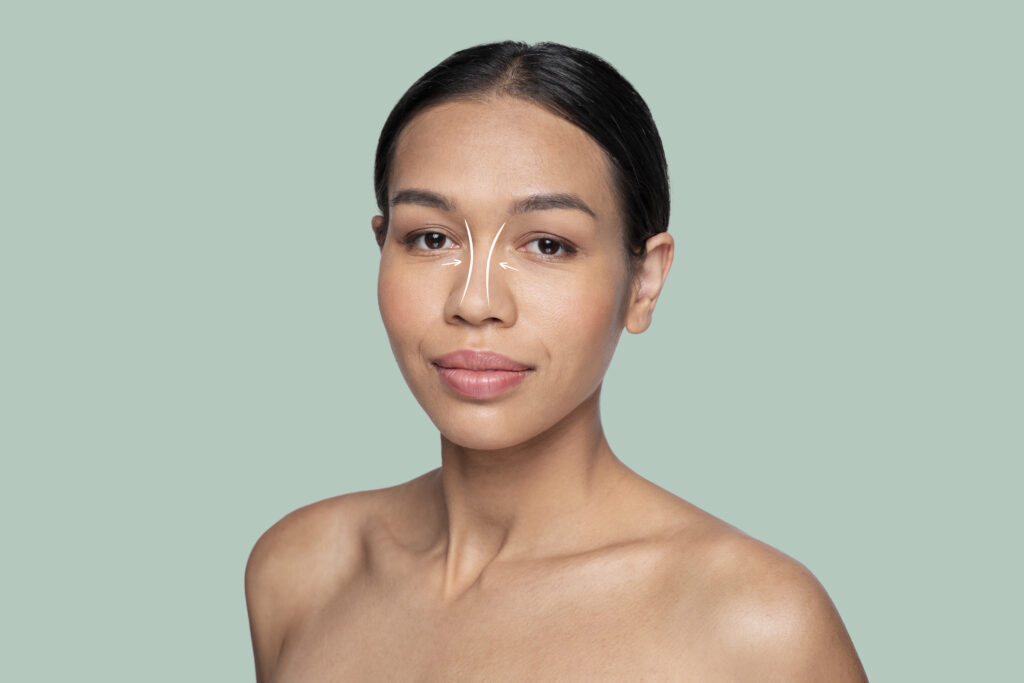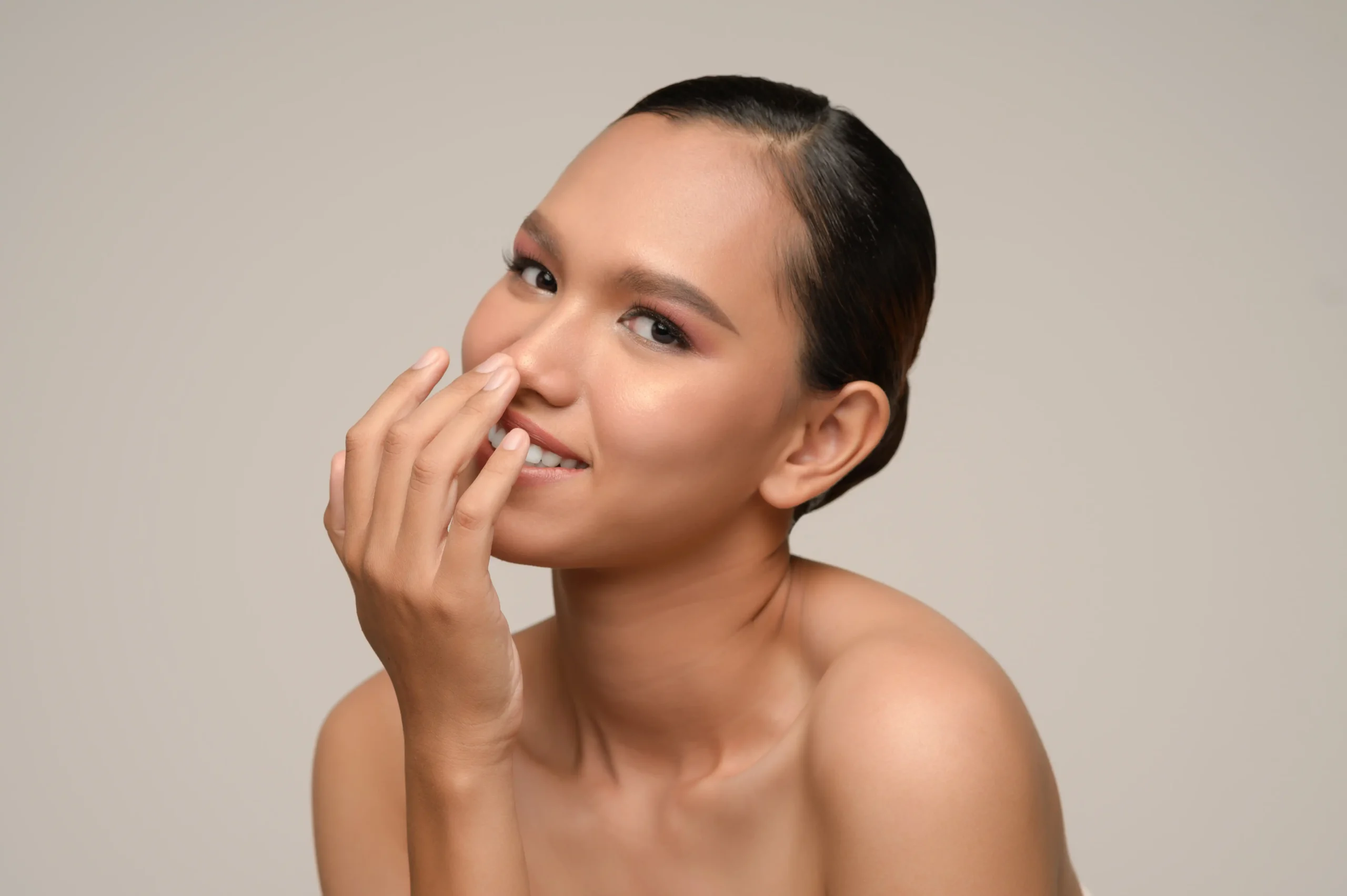Summer and nose surgery is a hot topic, literally!
If you’re thinking about a nose surgery done in summer or wondering whether rhinoplasty in the summer is wise, you’ve come to the right place…
In this guide, the best rhinoplasty surgeon in Turkey, Dr. Cem Altindag, will explore how heat and humidity play into your recovery, whether it’s really the best season for a nose job, and when you can safely sunbathe, swim, or even wear sunglasses after surgery.
By the end, you’ll know exactly what to expect and how to plan your procedure around your summer plans.
Contents
Best Season for a Nose Job
While many recommend spring or fall, nose surgery in the summer still works if you prepare for heat, each season has pros and cons.
- Spring: Mild weather, less chance of flu season, but unpredictable rain can keep you indoors.
- Summer: Longer days for more daylight recovery, but higher swelling from heat.
- Fall: Cool, dry air, easy to stay comfortable, and you recover before the holidays.
If avoiding heat is your priority, aim for early spring or late fall. But if your schedule only frees you up in summer, align surgery with cooler weeks, and follow heat-management strategies to ensure a smooth recovery.
How Summer Affects Nose Surgery
In summer, higher temperatures and humidity can increase swelling and skin sensitivity after nose surgery in the summer, so extra care with cooling, hydration, and sun protection is key.
Summer heat and humidity cause blood vessels to dilate. That can make post op swelling more noticeable in the first week after rhinoplasty in the summer. Your surgeon will likely recommend cold compresses, staying in air-conditioned spaces, and avoiding peak sun hours to keep inflammation in check.
Hot, humid air also affects your skin. Fresh incisions and healing skin can be more prone to redness and pigmentation. Wearing a wide brimmed hat and high SPF sunscreen helps prevent dark spots around scars. Staying shaded and cool shortens the overall recovery time and improves final results.
Finally, hydration is crucial. In summer heat, you lose more fluids through sweat, which can slow healing. Drinking plenty of water, eating hydrating fruits like watermelon, and limiting caffeine help your body rebuild tissue faster and reduce bruising.
Does Hot Weather Negatively Affect Rhinoplasty?
Excessive heat can worsen swelling and increase scar pigmentation after rhinoplasty in the summer, but protective measures minimize these risks.
Direct sun exposure raises your skin temperature, which can lead to extra swelling in the delicate nose tissues. That prolongs bruising and discomfort. Reducing time outdoors between 11 a.m. and 3 p.m., when UV rays are strongest, helps keep swelling to a minimum.
Without sun protection, scars may darken or become unevenly pigmented. Applying a zinc-oxide–based sunscreen (SPF 30 or higher) daily, even on cloudy days, protects healing skin. A lightweight SPF helps you meet your sun care obligations without feeling greasy.
Finally, avoid saunas and steam rooms until swelling fully subsides. These environments raise your core temperature, mimicking summer heat, and can inadvertently slow your healing process.
Is It Wise to Have Rhinoplasty While on Vacation?
Scheduling nose surgery in the summer around travel is possible, but plan your surgery at least three weeks before any big trip to ensure proper aftercare access.
If you’re eyeing a beach getaway right after your procedure, think twice!
The first two weeks post-op are critical: you’ll need cold compresses, sleep with your head elevated, and avoid dusty or sandy environments that could irritate incisions.
Traveling for surgery can be convenient if you choose a destination with reputable surgeons and reliable post op support. Just be sure you have follow up appointments lined up, and pack extra gauze, saline spray, and your surgeon’s emergency contact.
On the other hand, if your vacation involves lounging by the pool and sunbathing, you’ll want at least a month between surgery and sun time. That way, you’ll look, and feel, your best once you’re poolside.
Can Nose Surgery Be Done in Summer?

Yes! Nose surgery done in summer is perfectly safe if you follow your surgeon’s aftercare plan, including cooling measures, sun protection, and hydration.
Many surgeons schedule rhinoplasty year round. While winter patients worry about snow and cold, summer patients worry about sweat and heat. In reality, with proper planning, like booking surgery at the start of the season, you give yourself time to recover before the hottest months peak.
Minimally invasive techniques, such as micro incision approaches or closed rhinoplasty, offer faster swelling resolution. If you choose these options, you may feel comfortable going out in mild summer weather within 7–10 days, compared to two weeks or more for traditional open rhinoplasty.
Non surgical rhinoplasty, using fillers, has almost no downtime. If you’re on vacation and want a quick tweak, ask if dermal fillers could achieve your goals without the risks of heat related swelling.
How Long After Nose Surgery Can You…
Sunbathe?
Wait at least six weeks before sunbathing after nose surgery in the summer to protect scars and minimize pigmentation.
Gentle sun exposure at six weeks poses minimal risk to healed incisions. Before then, UV rays can darken scars and delay healing. Always apply a broad-spectrum sunscreen (SPF 30+) and reapply every two hours if you’re outdoors.
Even after six weeks, limit direct sun on your nose for long periods. Use an umbrella or hat for extra shade during summer outings.
Go Swimming?
Hold off on swimming, chlorinated pools and ocean water, for six to eight weeks post op to avoid infection and protect incisions.
Water carries bacteria, and pool chlorine can irritate fresh wounds. Waiting six to eight weeks gives silicone dressings and sutures time to dissolve or be removed. After that window, you can ease back in, first in chlorinated pools, then in saltwater if your incisions look fully healed.
Wear Sunglasses?

You can wear lightweight sunglasses after two to three weeks, once most swelling has subsided and sutures are gone, but choose frames that don’t press on your nose.
The days right after surgery, heavy frames can shift nasal bones or bump delicate tissues. By week three, swelling is lower, and most sutures are out. Opt for rimless or thin metal frames that sit lightly at the bridge. Always check with your surgeon before slipping on shades.
Summer Specific Recovery Tips
To recover well from rhinoplasty in the summer, stay hydrated, use cold compresses, and rest in a cool, climate-controlled space.
- Hydrate constantly. Aim for eight glasses of water daily. Add electrolyte tablets if you sweat heavily.
- Cold compresses. Use for 10–15 minutes every hour during the first three days. They help reduce heat-induced swelling.
- Climate control. Keep your home around 22 °C (72 °F). Avoid direct fan or AC blasts on your face.
Simple adjustments, like choosing loose clothing with high collars rather than tight tees, can prevent accidental contact with your nose and help you heal comfortably.
Real-World Examples & Statistics
On average, rhinoplasty patients see 70 percent of swelling resolve in two weeks, with full results by 12–18 months; summer patients report similar satisfaction rates when they follow heat-management advice.
A study of 500 rhinoplasty cases showed no significant difference in final outcomes between summer and fall surgeries. Patients who adhered to sun-protection protocols and hydration guidelines reported a 95 percent satisfaction rate—identical to those who had surgery in cooler months.
Consider Sara, a 28-year-old teacher who booked nose surgery done in summer two weeks before her vacation. By the time she hit the beach, her swelling had dropped by half, and she felt confident wearing a sunhat and sunscreen. Her final result was exactly what she hoped for, all while enjoying her summer break.
Conclusion
Rhinoplasty in the summer can be just as successful as in any other season, if you plan carefully. From managing swelling in hot weather to knowing exactly when you can sunbathe, swim, or don your favorite sunglasses, these guidelines will help you make informed choices. Talk with your surgeon about your schedule, follow their after-care plan, and you’ll be ready to show off your new profile well before your next pool party.
Ready to get started?
Book a consultation and find the best time for your nose job, summer included!


